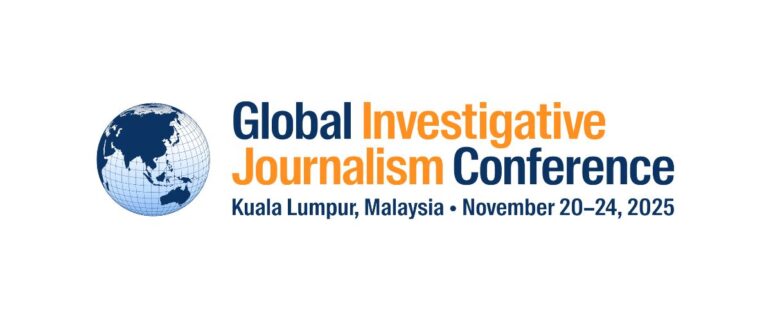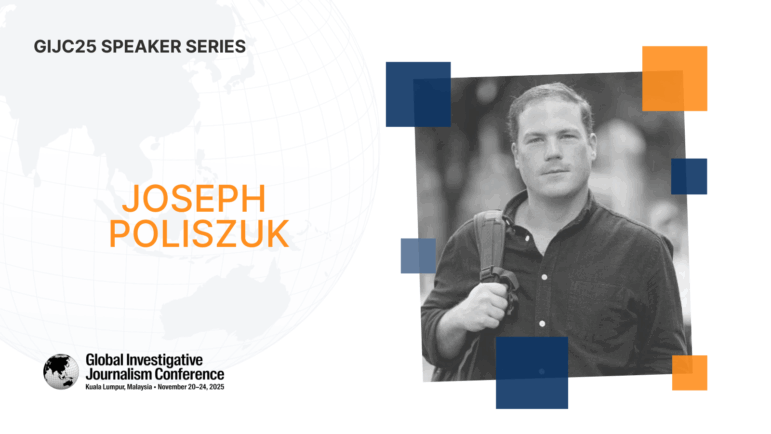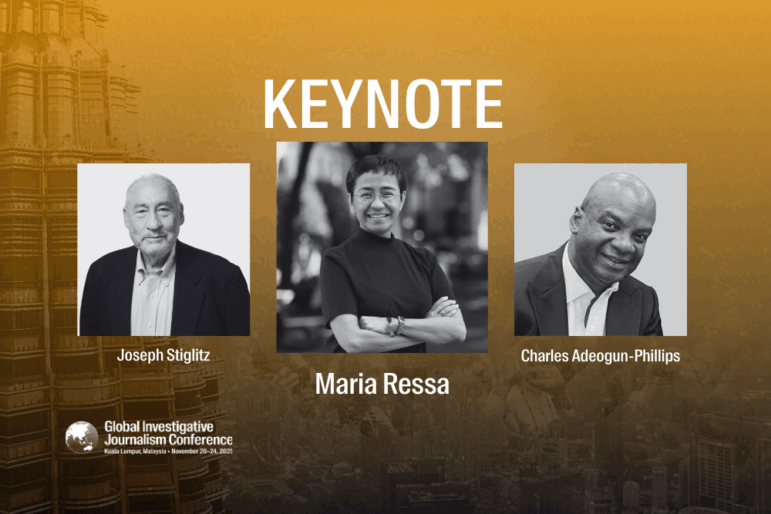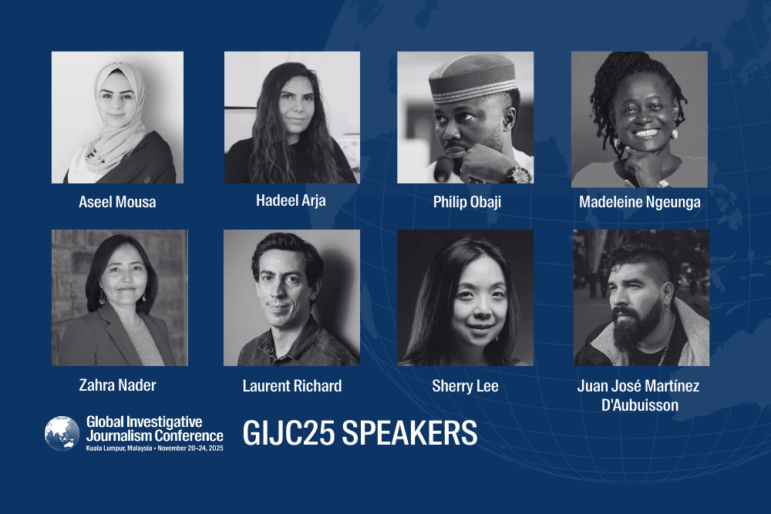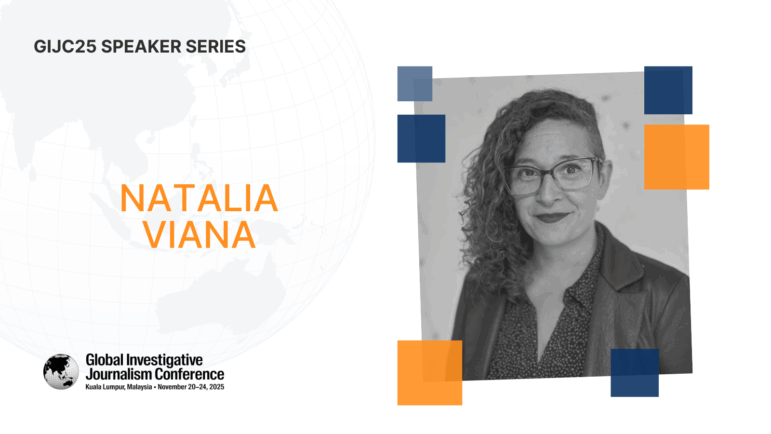

Image: GIJN
Editor’s Note: Ahead of the 14th Global Investigative Journalism Conference in Malaysia, GIJN is publishing a series of short interviews with a globally-representative sample of conference speakers. These are among the more than 300 leading journalists and editors who will be sharing practical investigative tools and insights at the event.
Natalia Viana is the co-founder and executive director of Agência Pública, Latin America’s largest nonprofit newsroom. Awarded a 2025 Maria Moors Cabot Prize for outstanding reporting in Latin America by Columbia University, Viana leads long-term investigative projects about corruption, injustice, and human rights abuses in Brazil and elsewhere in Latin America. In their citation for the Cabot prize, the awards committee at the Columbia Journalism School described the importance of her voice in the current global moment well: “Natalia Viana is the kind of journalist our times demand: a reporter, editor, storyteller, and mentor to new generations. Above all, she is an entrepreneur who has built digital-native investigative media outlets to expose power and its inner workings in an era overwhelmed by disinformation.”
Viana has also authored or co-authored five books on political violence and pressing public interest issues in Latin America, including her insider account of the WikiLeaks Cablegate saga, O Vazamento (“The Leak”), and her team has won 80 journalism prizes in total.
Viana will speak on panels titled Managing Investigative Newsrooms as well as Exposing Online Influence and Manipulation Operations at GIJC25 in Kuala Lumpur.
GIJN: Of all the investigations you or your team have worked on, which has been your favorite, and why?
Natalia Viana: There are so many! Our team is constantly working on amazing stories. Just this year, we published an amazing series about the slave past of [Brazil’s] political elite, which won the Excellence in Journalism Award by the Interamerican Press Society. And we are working on a series of investigations about the lobbying of Big Tech, which has been extremely active in Brazil. But for me, some of the investigations that touched me the most were Sao Gabriel and its Demons, about an epidemic of suicides amongst Indigenous peoples in the Amazon state, and the investigation into killings of civilians by the military in Rio’s favelas, which was a finalist at the Global Shining Light Award in 2019, by the way.
GIJN: What are the biggest challenges for investigative reporting in your country?
NV: Brazil is facing big challenges that are true elsewhere, but probably on a higher scale. Because of the wide use of tech platforms, disinformation is rampant and harassment against journalists is normalized — especially against female journalists. We at Agência Pública have to take a series of measures to guarantee the safety and also the mental health of our journalists, but it has been an uphill battle.
GIJN: What reporting tools, databases, or techniques have you found surprisingly useful for your investigations?
NV: I believe AI has a function as a tool, as a support for journalists, but not as a replacement. That’s why we launched early on a policy on how and where we would use AI. For instance, we pledged not to use AI for the production of journalistic content for our readers, but we absolutely should be using AI for internal tool development, summarizing, translating, and helping us see patterns in big data, etc. However, always under human supervision and always with fact checking afterwards.
GIJN: What’s the best advice you’ve received from a peer or journalism conference — and/ or what words of advice would you give an aspiring investigative journalist?
NV: The best advice that I have received was from Monica Gonzales, a top Chilean investigative journalist, from whom I sought advice when Bolsonaro was elected. She told me: go to the most important story; follow the money; follow the links; do not get sidetracked. I think as journalists we have to be brave and humble at the same time, but always truthful to ourselves, to know what is the real story going on. We should not be avoiding the big stories of our time, even if we feel that we are not good enough, or our media is not large enough, or we do not have enough money. It takes a journalist to know the truth.
GIJN: What topic blindspots or undercovered areas do you see in your region? And which of these are ripe for new investigation?
NV: The main issue today is that there has been a massive economic shift in how the internet, and especially these platforms, have operated since 2010. Those who study the subject often refer to it as “platformization” — where the internet has ceased to be an open field of exchange and has instead become a space dominated by a small number of large tech platforms, which are the main products of five companies that dominate digital communications: Alphabet, Amazon, Apple, Meta, and Microsoft. We could also include ByteDance, the owner of TikTok, and Twitter/X.
We have an obligation to investigate the influence of Big Tech, its alliance with the far right, and especially with the government of Donald Trump, as well as how its investments in lobbying and influence operations have managed to maintain its market power in most countries worldwide. This is one of the most concentrated, profitable, and least regulated markets in the history of capitalism. I believe journalism still has a huge task ahead in investigating these companies, their financial structures, their offshore headquarters, their executives, and their relationships with politicians and the press.
GIJN: Can you share an example of the kind of technique or insight you plan to highlight for GIJC25 attendees — or otherwise what you yourself are looking forward to in Malaysia, whether in terms of networking or learning about an emerging reporting challenge or approach?
NV: I am looking forward to the conference and will focus on investigating tech, as well as several other discussion panels about this topic. I feel that journalists around the globe, but especially in the Global South, must connect and start partnering up to report on the economic abuse of these companies. I always learn a lot when I go to GIJC, and look forward to the event that presents the winner of the Global Shining Light Award. I always feel so inspired and challenged to do more and better journalism afterwards. Finally, I am very, very excited to see the first GIJC to be conducted by a woman, GIJN’s executive director, Emilia Díaz-Struck, an amazing journalist from Venezuela who we in Latin America have had the luck to know for years. I am very glad to see her leading this global powerhouse of journalism!
 Rowan Philp is GIJN’s global reporter and impact editor. A former chief reporter for South Africa’s Sunday Times, he has reported on news, politics, corruption, and conflict from more than two dozen countries around the world, and has also served as an assignments editor for newsrooms in the UK, US, and Africa.
Rowan Philp is GIJN’s global reporter and impact editor. A former chief reporter for South Africa’s Sunday Times, he has reported on news, politics, corruption, and conflict from more than two dozen countries around the world, and has also served as an assignments editor for newsrooms in the UK, US, and Africa.

